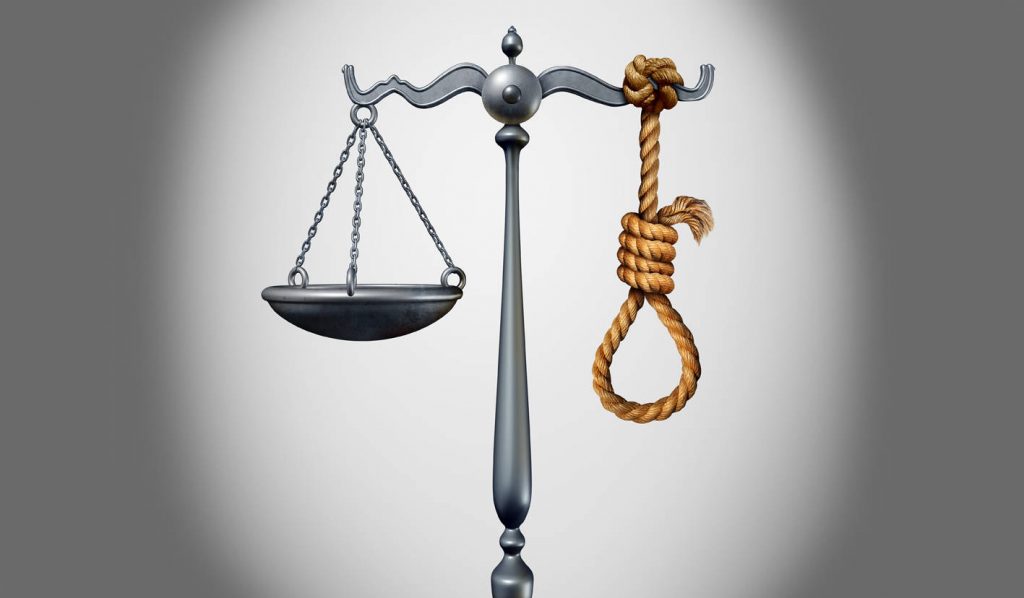UK weighs in on death sentence
The British Government has strongly opposed Malawi’s position that the death penalty is still part of the country’s laws.
The Malawi Supreme Court of Appeal in its judgement on Wednesday reaffirmed that the death penalty was still applicable, contradicting an earlier judgement by the same court in April this year which abolished it.

In a statement issued on Friday, British High Commission Charge d’affaires Fiona Ritchie said her government supports the United Nations General Assembly Resolution for the moratorium on the use of the death penalty and advocates for the reduced use of the death penalty overseas.
Reads the statement in part: “We believe that the death penalty undermines human dignity, there is no conclusive evidence of its deterrent value and any miscarriage of justice is irreversible and irreparable.
“We would like to acknowledge and respect judicial independence. The final perfected judgement in the Khoviwa case that was brought before the Malawi Supreme Court of Appeal clarified that the constitutionality of the death penalty was not part of the original case.”
Ritchie said she welcomed the debate and interest the case has created for the abolition of the death penalty in Malawi.
The British envoy said this demonstrated popular support for the removal of the death penalty from Malawi’s legislative framework.
“It also increased Malawi’s international reputation for standing up for human rights,” she said.
Africa, Ritchie said, has joined the growing trend towards the abolition of the death penalty worldwide, with 80 percent of the members of the African Union having already abolished the death penalty in law or practice.
“We would encourage the government and Parliament of Malawi to explore alternative ways of removing the death penalty from the statute books. We stand ready to share our experience with the process of abolishing the death penalty,” she said.
The Supreme Court of Appeal this week clarified that Malawi never abolished the death penalty and that High Court judges are free to sentence murder convicts to death.
The initial assertion followed what the Judiciary is now describing as “unperfected Supreme Court judgement” written by Justice of Appeal Dunstain Mwaungulu (now retired) on behalf of his colleagues in April 2021 which held that the court had declared the death penalty unconstitutional.
But the majority opinion of the highest court on the land has since decided otherwise and blamed their colleague for the judgement, saying constitutional issues on whether to abolish the death penalty were never brought before the court for consideration.
Supreme Court judges that formed a seven-member panel—Chief Justice Andrew Nyirenda, Rezine Mzikamanda, Anaclet Chipeta, Lovemore Chikopa, Frank Kapanda and Edward Twea—disowned and disassociated themselves from Mwaungulu’s findings that the court had abolished the death penalty.
And Judiciary spokesperson Gladys Gondwe said in an interview that what should be relied upon now is the latest Supreme Court judgement that death penalty is still applicable.
Malawi Law Society (MLS) president Patrick Mpaka agreed with the Supreme Court interpretation of the law, saying what was abolished in 2007 was mandatory death sentence, meaning some judges could apply it and others could not.
The latest judgement has stirred controversy, with Mwaungulu blaming his colleagues for reading and giving to the public his draft judgement as the position of the court in April, and later (last Wednesday), inserting their opinions in it, without the courtesy to inform him first.
Former president Bakili Muluzi, who ruled the country from 1994 to 2004, is on record to have refused to sign death warrant certificates.
More than 30 countries in Africa have the death penalty in their books, but only half of them have carried out executions in recent years.





